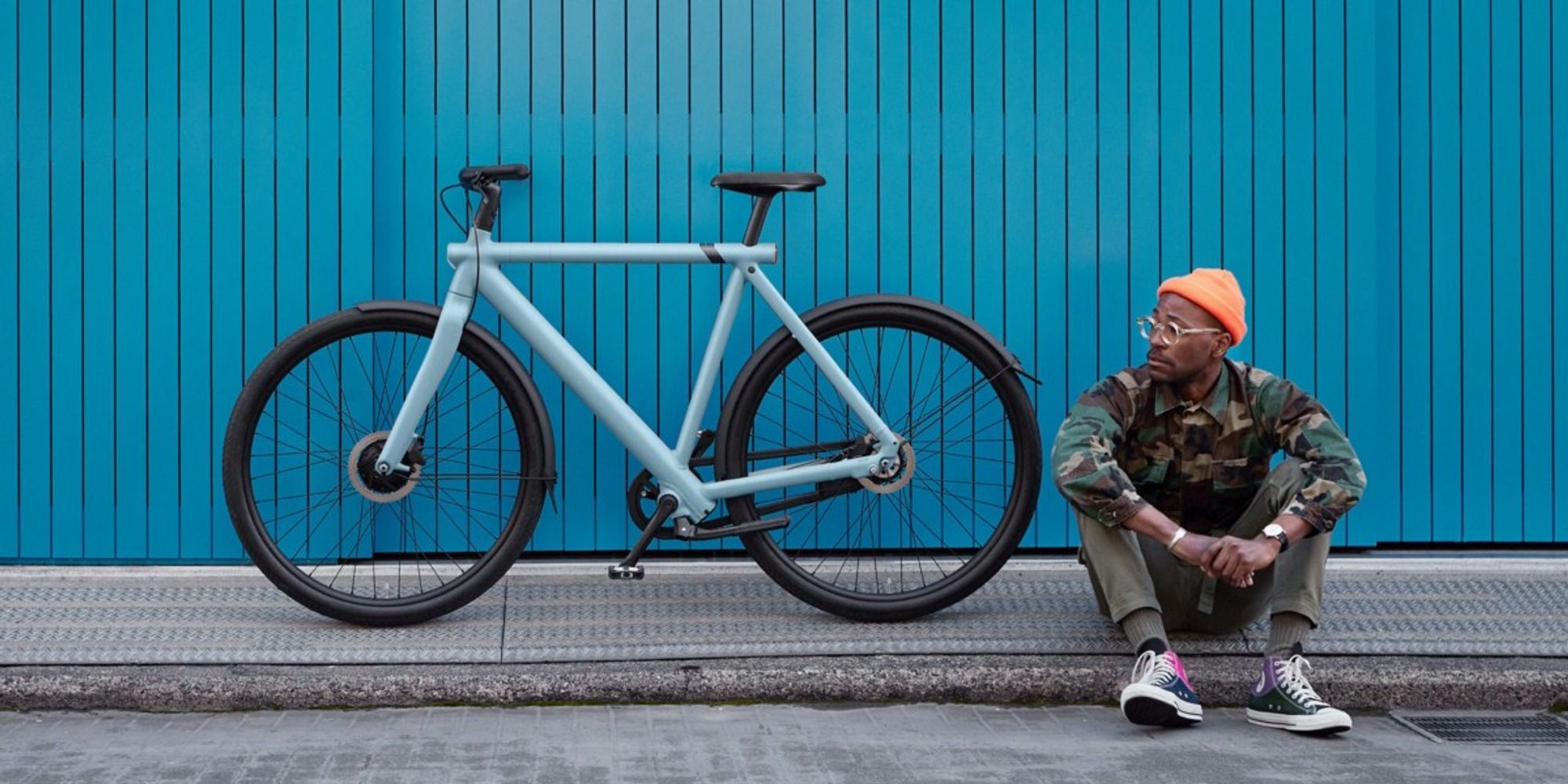
VanMoof’s electric bike, the S3
In a year full of an endless barrage of harrowing climate disasters, more attention is on shifting entire countries to electric cars than ever in an attempt to mitigate the damage to the climate before it’s too late.
The European Union has promised to phase out fossil fuel new car sales by 2035, Canada has promised the same, and Norway hopes to do so by 2025. More countries are making similar promises every day, and there’s more choice than ever for those shopping for an electric car for the first time, which is great progress toward cleaner cities.
But, simply replacing cars with more cars, even if they’re dramatically better for the environment, feels like a missed opportunity to reinvent cities — do we really want to lock in private vehicles dominating our roads forever? Why are we relying on the electric car to save us, instead of talking about the dramatic rise of powerful, capable, electric bikes as a way to replace them altogether?
In most of the world, our cities are crawling with cars and the infrastructure that we dedicate to them. Roads, motorways, and parking garages are everywhere. Few people give this much thought until they visit a city designed for bicycles, like Amsterdam, where I lived for five years before moving to Toronto, Canada. In The Netherlands, the bike is the default, and few people even consider driving (or owning a car) within their own city.
For cities, electric bikes are a no brainer way to address climate change and both reduce emmissions as well as create a more livable city. They take a fraction of the space that a car would on the road while driving and parking, allow you to bypass traffic jams, and are good for your health. But, despite their benefits they receive little attention compared to the breathless coverage in the technology industry of electric car companies like Tesla.
As we face the enormous task of shifting people’s behaviors away from fossil fuels to electric cars, there’s an opportunity to get people on two wheels, instead of four, and move away from car-by-default in urban centres. If the Dutch can cycle rain, snow, or shine, why can’t the rest of us?
Electric bikes fit the bill, and can be just as high-end as a Tesla might feel, albeit in a different form factor. Not only do electric bikes lower the barrier to entry for those that might be hesitant to cycle; they collapse distances that require driving into a short cycle, allow you to get there faster, arrive less sweaty, and are far easier to park — for free.
Sensing this opportunity, the electric bike industry has absolutely exploded in the last few years, moving from a niche with few options to massively competitive, with high-end, bikes crammed with smart technology like that you’d find inside an iPhone, and could absolutely replace a car for many city-dwellers, if only they’d give it a chance.
Today’s electric bikes aren’t like your parent’s bikes; they make it far easier to navigate cities over both short and long distances for any type of trip, with cargo, groceries, or kids onboard, without arriving sticky. Bikes like the VanMoof S3 are capable of riding up to 93 miles on a single charge, and loaded with smart technology like the ability to remotely track it if stolen.
The Cowboy 4 smart electric bike
Others, like the Cowboy 4 feature wireless charging, removable batteries, turn-by-turn directions, and can charge your phone along the way. Electric cargo bikes designed for hauling children and cargo around the city can replace the minivan with a little imagination. There are even electric bikes available via subscription service, rather than an up-front purchase.
Unlike electric cars, which cost tens of thousands of dollars and require a dedicated spot to charge them, electric bikes are available for far less money, can be stored practically anywhere, and charged up even if you live in an apartment where you might not have a parking spot.
In the US, studies have shown that over 69 percent of car trips are under two miles, trips which could easily be replaced by an electric bike just as efficiently, which would massively slash the average person’s carbon footprint. The EPA found that if half of these short trips were made by foot or bike instead, it would be the equivalent of taking 400,000 cars off the road permanently.
Yet, despite this, many countries offer thousands of dollars in discounts and rebates for buying an electric car, when there’s an opportunity to change buyer behavior altogether. Some cities, like Paris, are experimenting with offering $3,000 to trade-in a gas-guzzling car for an electric bike, but such programs are rare today.
Electric cars are exciting and certainly an important part of how we reduce emmissions globally, but they aren’t the only solution, and the hype around the transition is drowning out a bigger discussion: what if we didn’t drive cars or prioritize them in our cities? We have a window of opportunity to imagine a different future, before we lock in more of the same.
Electric bikes are more affordable, loaded with smart technology, good for you, and fun to ride. In many places, they’re outselling electric vehicles, despite getting a fraction of the attention. If you’re in a city, there’s never been a better time to try replacing some of your trips with an electric bike — you’ll be surprised how little you need a car after all.